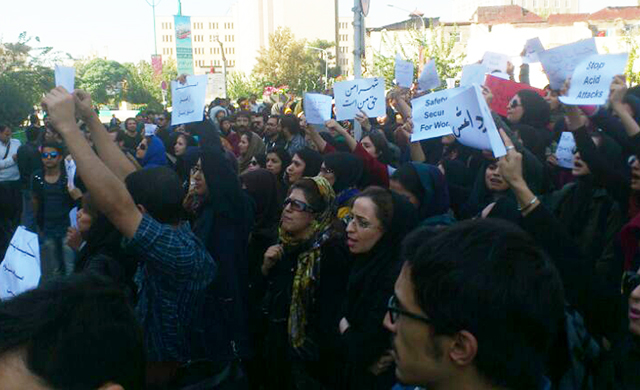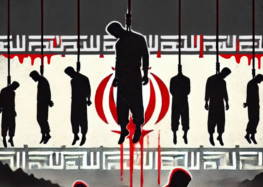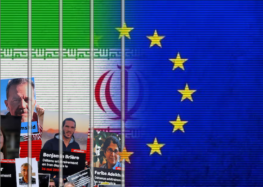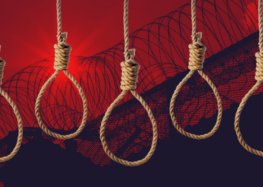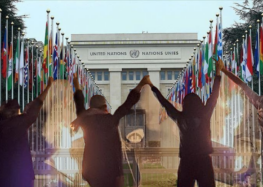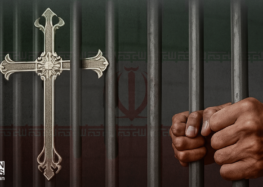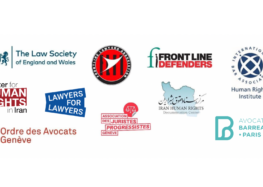Protesters Deploring Acid Attacks against Women Are Beaten and Arrested
Plainclothes Agents Disperse Crowd with Batons and Tear Gas
An October 22, 2014 gathering in front of the Iranian Parliament to protest the recent acid attacks against women has ended in the violent beating and arrests of several citizens, human rights activist Narges Mohammadi told the International Campaign for Human Rights in Iran. Sources also told the Campaign that plainclothes agents used batons and tear gas to disperse the large crowd that had gathered outside the Judiciary building in the city of Isfahan.
“Our intent for this gathering was to protest some of the plans by members of the Parliament which are targeting women’s bodies and psyche. Plans such as the ‘Plan on Protection of Promoters of Virtue and Preventers of Vice’ and the ‘Plan to Protect Chastity and Hijab’ have issues and vocabulary that may be abused in the Iranian society and turned into excuses for violence [against women],” said Narges Mohammadi.
Regarding the plainclothes agents’ entanglement with the crowd, Mohammadi said, “Mr. [Mohammad] Nurizad was standing one step away from me. He was taking pictures when the plainclothes agents first threw his camera to the ground, and then they took him away. People were chanting, ‘Let him go, let him go!’ But they took Mr. Nurizad to the van. I saw that agents took the cameras of two other youths who were taking photographs, beat them up and took them with them. These are things I saw with my own eyes.”
Also on October 22, a group of Isfahan citizens gathered in front of the Isfahan Judiciary complex, in order to protest the recent acid attacks against women. This gathering also ended when security agents attacked the crowd. A source told the Campaign, “Plain clothes forces were swarming around the Judiciary building. Unfortunately, after people started to chant slogans the plainclothes agents entered the crowd and beat several of them with batons and shot tear gas into the crowd. People had to leave a little later.” The crowd was reportedly chanting slogans demanding security when the crackdown took place.
Separately, newspapers published results from medical tests that confirmed the acid attacks on the women in Isfahan were perpetrated by the same person/persons. Shargh Newspaper wrote that according to the evaluation of the acid traces left on the clothes and cars of the victims, the same acid was used in all of the incidents. All the incidents also occurred between 7:00 and 7:30 p.m., and in all cases the victims were female drivers.
Police Commander Esmaeel Ahmadi Moghaddam said on October 22 that new leads have been found in the case of the Isfahan acid attacks. “According to victim testimonies, it appears the actions were carried out by the same person,” he said. Deputy Interior Minister Morteza Mirbagheri, however, said on October 20 that “three to four people” had been arrested as suspects in the case.
ISNA wrote on October 16, that unidentified bikers had thrown acid on a young woman driving a car the previous night. This was in fact the first news article about the acid attacks published by a government news agency. Official sources have so far confirmed four acid attacks, but unofficial sources have reported six to eleven cases during recent weeks.
The medical reports published today have sent shock waves among Isfahan citizens, leading them to fear that the acid attacks are organized, serial acts that may be repeated against women. Officials and members of the Parliament have so far dismissed such a possibility.
On October 21, 2014, the Iranian Parliament’s Commission on National Security and Foreign Policy stated that according to the information they had received, none of the acid attacks are related to “promotion of virtue and prevention of vice,” and that these news items are fabrications of foreign media. The Commission also said that only four of the attacks had taken place in Isfahan.
On October 21, 2014, members of Parliament added a new article to their proposed ” Plan on Protection of Promoters of Virtue and Preventers of Vice,” which stated, “No individual or group has the right to attempt criminal acts such as insults, libel, beating, injuring, or murder of others under the umbrella of ‘promoting virtue or preventing vice.’” The article received 155 votes in favor, 12 votes against, and 13 abstentions from the 217 members present at the Parliament, and was approved accordingly.
Iran’s Interior Minister, Abdolreza Rahmani Fazli attended a meeting of the Clerics Faction of the Iranian Parliament on October 21, and asked them to resolve the shortcomings of the proposed “Plan to Protect Chastity and Hijab” in order to prevent problems in society. Iranian officials have said in the past that currently 25 organizations and institutions are responsible for promoting the culture of chastity and hijab in the country.

